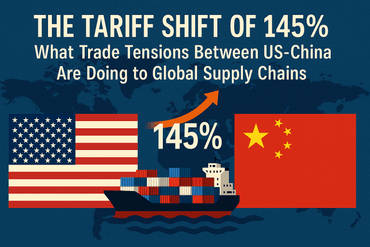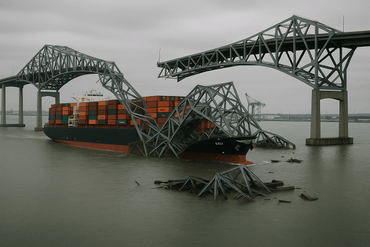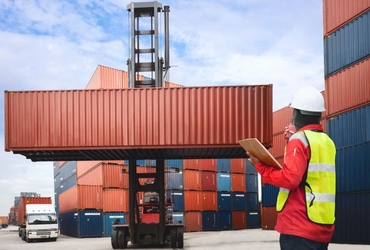
ELD Mandate: What you need to know



If you’re in trucking, then you must already know what the industry is talking about these days: The implementation of the ELD mandate. This is a change that’s not only likely to change the landscape of trucking logistics in the US. Its effects are also likely to carry over to the ocean freight industry as trucking companies look to adapt, or sink.
As with the proposal to forcibly limit truck speeds, this mandate looks to improve road safety for truckers. In this post, we break down the ELD mandate, what it encompasses and how it affects the shipping industry.
Update* (13 Feb 2018): The implementation of the ELD mandate has exacerbated the trucking shortage problem in the US. Read up here on the current situation, other causes, and advice on how you can get around the problem to avoid delays.
What is the ELD mandate?
The ELD mandate requires all truck drivers to install an electronic logging device (ELD). It automatically records driving time, engine hours, vehicle movement, miles driven and location information. This will replace the manual logging of their journeys manually on paper, which has been in place since the 1930s. It allows trucking companies to track driving information as well as non-driving activities of their drivers.
Who does it affect?
This is an industry-wide change, all truckload carriers must make the switch. Basically, if you’re required to maintain a record of duty status log, you will need to make the full change before December 2017. That means a selecting an appropriate ELD according to your budget and performing a full installation for your entire fleet. Paper logs will no longer be legal then.
Affected vehicle type: All interstate commercial motor vehicles models 2000 or newer
Implementation date: December 18, 2017
Arguments
For the ELD mandate
The camp supporting the mandate is led by the Federal Motor Carrier Safety Administration (FMCSA). It says that ELDs will driver compliance, decrease paperwork, reduce the number of fatigue-related accidents involving large trucks. FMSCA estimates that ELDs will prevent some 26 fatalities and 562 injuries from accidents involving large commercial motor vehicles annually.
The ELD will increase safety as drivers will have to stick to the rules and stop for the rests that they need to take. And it will even the playing field for the truckers in the sense that everyone will have to use similar types of systems and it will be much harder for a driver/carrier to falsify papers. Think we can all agree on that being to everyone’s benefit.
Klaus Lysdal, VP of Sales and Operations, iContainers
Against the ELD mandate
On the other side of the fence, the arguments against the ELD mandate include:
- The ELDs aren’t capable of recording enough information automatically due to the need for human involvement
- The rule fails to project drivers from harassment as the term “driver harassment” is not sufficiently defined
- The rule’s benefits will not outweigh its costs because FMCSA performed a flawed analysis
- The mandate does not protect the confidentiality of personal data collected by ELDs
- It violates the Fourth Amendment’s prohibition against unreasonable searches and seizures.
According to a recent survey by Overdrive Magazine, 71% of independent drivers have threatened to quit if they were forced to install these devices. This would mean a 10% reduction, or 260,000 trucks, of the industry’s current truck fleet. If proved true, logistical transportation in the US would take quite a hit.
OOIDA (Owner Operator Independent Drivers Association) has been battling the courts in an attempt to delay the implementation - to no avail.
ATA (American Trucking Associations) is firm in its belief that there will be no delay in the Dec. 18 deadline to implement the electronic logging devices. This rule has been upheld by FMCSA, by Congress, and by the courts, and we see no reason for it to be delayed.
Sean McNally, ATA Spokesman
How will the ELD mandate affect the ocean freight industry?
The installation of ELDs will likely lead to a reduction in the number of miles a truck can travel per day. Certain truckload carriers that have made the switch have reported a 3% to 5% reduction in capacity. The mandate will ultimately force truckers to comply with a federal rule that limits driving to a maximum of 11 hours per day. Given that, expect a further tightening of trucking capacity leading to delays and delay charges. Higher overall logistics and fleet costs due to the lower truck and driver utilization rates are also a possibility.
When new hours of service rules came into effect in July 2013, shippers witnessed a drop in motor carrier productivity. That had translated into a compromise of capacity. The ELD could very well have a similar impact.
Shippers will need to be more cognizant of their drivers’ time. Keeping [drivers] moving will be more important than ever to comply with the hours of service rules.
Chris Spear, president and CEO of American Trucking Associations
The effects of the ELD mandate are likely to ripple into the shipping industry. Around 20% of shippers are reportedly not prepared for the potential rate hikes for contract rates. Experts say rates are expected to rise from 6 to 10 percent, and could skyrocket as much as 20 percent in the peak period next year.
What’s next?
Shippers need to consider their next move, taking into account how this mandate affect their trucking partners. Already, many are asking their trucking companies when they plan on installing the devices if they haven’t already done so. The loss of truck capacity is a potential problem. It’s not uncommon for truck drivers or carriers to simply drop out when new stringent driver work rules come into effect.
Delays during loading/unloading or equipment pickup and return can cause large disruptions in their day. Depending on how strictly driving time rules are enforced. And the reduction in available capacity will lead to rising cost and rising prices. Which of course is beneficial for the industry but less so for their customers and the end users.
Klaus Lysdal, VP of Sales and Operations, iContainers
Related Articles


